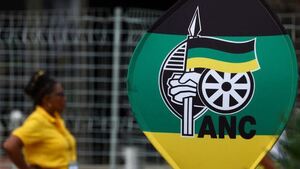Human Rights Watch (HRW) has raised fresh concerns over the government’s failure to ensure justice, describing the situation as a “festering wound” for communities still reeling from the violence.
The attacks, which occurred between February and May 2022, were carried out by local officials in Koch and Mayendit counties, supported by government troops and militia fighters. Targeting opposition-held areas, especially Leer County, the violence resulted in widespread killings, sexual violence, the burning of homes, and the looting of humanitarian aid.
“This wasn’t just conflict, it was calculated,” said Nyagoah Tut Pur, HRW’s South Sudan researcher, in an interview. “Civilians were deliberately targeted, properties destroyed, markets burned down. Health clinics and food warehouses were looted or reduced to rubble.”
The violence reportedly stemmed from a territorial power struggle between officials loyal to President Salva Kiir and those aligned with Vice President Riek Machar. Though the 2018 peace deal had established a transitional government, deep divisions within the security sector remained unresolved, creating space for renewed conflict.
Leer County bore the brunt of the attacks, many of which unfolded in villages predominantly inhabited by Nuer communities, perceived to be supporters of Machar’s opposition group. According to Tut Pur, the atrocities included gang rapes, forced displacement, and mass destruction of livelihoods, occurring in an area already devastated by severe flooding and food shortages.
Despite the scale of the abuse, no one has been held accountable. Although the government set up a commission of inquiry in April 2022, the report has not been made public, and its recommendations, reportedly including the removal of implicated officials, have not been acted upon.
“Too often, these committees are announced as a way to signal action, but they end up blocking other accountability mechanisms like police or judicial investigations,” Tut Pur said. “Without transparency and follow-through, justice remains out of reach.”
HRW is now urging South Sudan to publish the commission’s findings and move forward with prosecutions. The organisation is also calling for the activation of a long-delayed hybrid court, a provision in the peace agreement designed to try serious crimes through a mix of South Sudanese and international judges.
“This hybrid court was never just a suggestion, it’s a commitment,” said Tut Pur. “And it’s urgent. Impunity is fuelling ongoing violence. Civilians are still being targeted in other parts of the country, including through aerial attacks. It’s time for accountability to be more than a promise.”
As the country prepares for scheduled elections and faces continued instability, rights groups say there is still an opportunity for the government to restore public trust, but only if it takes concrete action to deliver justice.
--ChannelAfrica--













